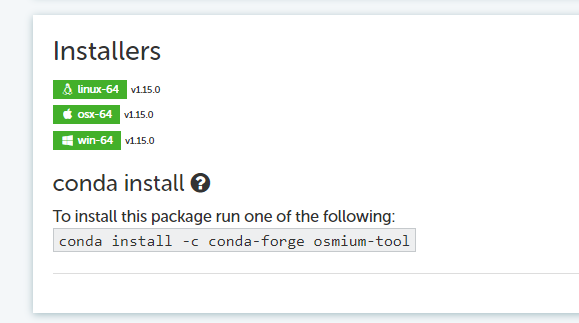I am running Windows and using the osmosis.bat file that came in the osmosis-0.48.3 file.
I’m trying to reduce the size of the osm.pbf file based on the information at OpenStreetMap map size reduction guide
The first two steps worked fine. The third step generates the following error:
SEVERE: Execution aborted.
org.openstreetmap.osmosis.core.OsmosisRuntimeException: No default pipes are available as input for task 12-merge.
Here is the command I am running within a batch file: os-3.bat
osmosis --read-pbf file="canada-latest.osm.pbf" --tf accept-nodes place=country,state,region,province,district,county,municipality,city,town,village,hamlet,isolated_dwelling,farm,allotments" --tf reject-ways --tf reject-relations --sort --read-pbf file="canada-latest.osm.pbf" --tf accept-ways place=country,state,region,province,district,county,municipality,city,town,village,hamlet,isolated_dwelling,farm,allotments" --tf reject-relations --used-node --sort --read-pbf file="canada-latest.osm.pbf" --tf accept-relations "place=country,state,region,province,district,county,municipality,city,town,village,hamlet,isolated_dwelling,farm,allotments" --used-way --used-node --sort --merge --merge --write-pbf granularity=10000 ".\output\canada-latest-place.osm.pbf"
I’ve done some searching and the only thing I came across here in the community. I see references in their post for outPipe but don’t know how I would implement that in my batch file.
https://community.openstreetmap.org/t/osmosis-hangt/61726
osmosis -v 5 --rx zuerich.osm.bz2 --tee 2 outPipe.0=all1 outPipe.1=all2 --tf inPipe.0=all1 reject-relations --tf accept-ways amenity=car_sharing --used-node outPipe.0=ways --tf inPipe.0=all2 reject-relations --tf reject-ways --tf accept-nodes amenity=car_sharing outPipe.0=nodes --merge inPipe.0=ways inPipe.1=nodes --wx result.osm
